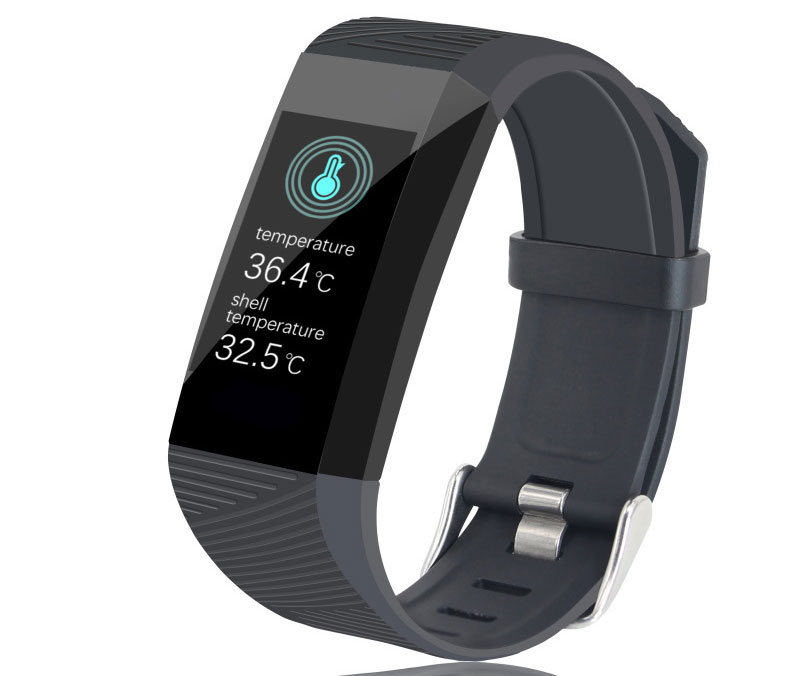
The covid-19 pandemic illustrates the importance of medical devices and wearable remote monitoring devices in healthcare. As hospitals were struggling to make space for only the sickest patients, they were simultaneously evaluating the use of new technologies to monitor patients from their homes.
Now, as companies, cities and communities are re-opening, it is paramount that they do so in a way that guarantees the safety of their employees, students, customers or visitors. Several innovative devices that are now available have been designed for that goal. For example, Sensoria Health, maker of wearable technology designed to improve healthcare, has a new Smart Band that tracks key vitals such as temperature, heart rate and blood oxygenation to detect potential symptoms and identify high-risk individuals allowing employers and healthcare professionals to intervene early, says a press release.
According to ABI Research, several wearable, platform, and healthcare companies are working together on different projects that use healthcare wearable devices, smartwatches, or activity trackers to aid with tracking the progress of the virus or monitoring the vital statistics of potential sufferers. Tomsett, Wearables Analyst at ABI Research, explained that “the wearable trials and deployments that record vitals and monitor symptoms alert medical professionals if a patient’s condition worsens. This becomes particularly important when the number of hospital beds is limited and so many patients are being sent home, ensuring that the seriously ill are cared for in a hospital while the less ill are still monitored when at home.”
Nemaura Medical, Inc. announced last month that it had, “issued a presentation outlining how CGM is being used by quarantined and hospitalized COVID-19 patients. The Company has previously reported the uses of continuous lactate measurements for the monitoring of diseases progression in COVID-19 patients. Today the company issued a report outlining how CGM has been used as an effective tool for the monitoring of disease progression in both quarantined and hospitalized COVID-19 patients. This includes improvement in glycemic control in persons with Type 2 diabetes, monitoring and managing hyperglycemia in patients with COVID-19, and remote monitoring of glucose levels in hospitalized COVID-19 patients leading to improved quality of care without compromising the safety of medical professionals.

iBio, Inc. reported back in June that IBM Watson Health had selected iBio to receive 18 months of use of the IBM Clinical Development (ICD) solution, free-of-charge. IBM Watson Health recently began offering its ICD solution to eligible trial sponsor organizations as part of its efforts to help support the medical community to address the COVID-19 pandemic.
Co-Diagnostics, Inc. earlier in May announced the publication of a paper showing its Logix Smart™ COVID-19 Test Kit was used to demonstrate that the SARS-CoV-2 virus can be detected in cancer tissue of coronavirus patients, even before symptoms occur. The peer-reviewed paper, published in the Journal of Clinical Pathology, described a study performed at the European Institute of Oncology in Milan, Italy. Researchers used the Company’s test to determine whether SARS-CoV-2 was present in the removed tumor of a man who later become symptomatic and was diagnosed with COVID-19.
Novavax, Inc. announced last month Phase 1 data from its Phase 1/2 randomized, observer-blinded, placebo-controlled trial of its COVID–19 vaccine with and without Matrix–M™ adjuvant in healthy adults 18-59 years of age. NVX–CoV2373, the Company’s recombinant COVID-19 vaccine candidate adjuvanted with Matrix-M, was generally well-tolerated and elicited robust antibody responses numerically superior to that seen in human convalescent sera. The data have been submitted for peer-review to a scientific journal and to an online preprint server at medRxiv.org.
Read more Healthcare Organizations Using Technology To Address Health Disparities During COVID-19 Pandemic
OPKO Health, Inc. announced back in July that it will accept an Indefinite Delivery Indefinite Quantity (IDIQ) contract award to provide Commercial Surge Capacity Testing for COVID-19 Emergency Response to the Centers for Disease Control and Prevention (CDC). Under the contract with the CDC, BioReference will perform antibody testing to determine COVID-19 seroprevalence and will provide results with key demographic information and analysis in collaboration with the CDC. The agreement’s period of performance began July 20th, 2020, and is ongoing through November 19th, 2020.








